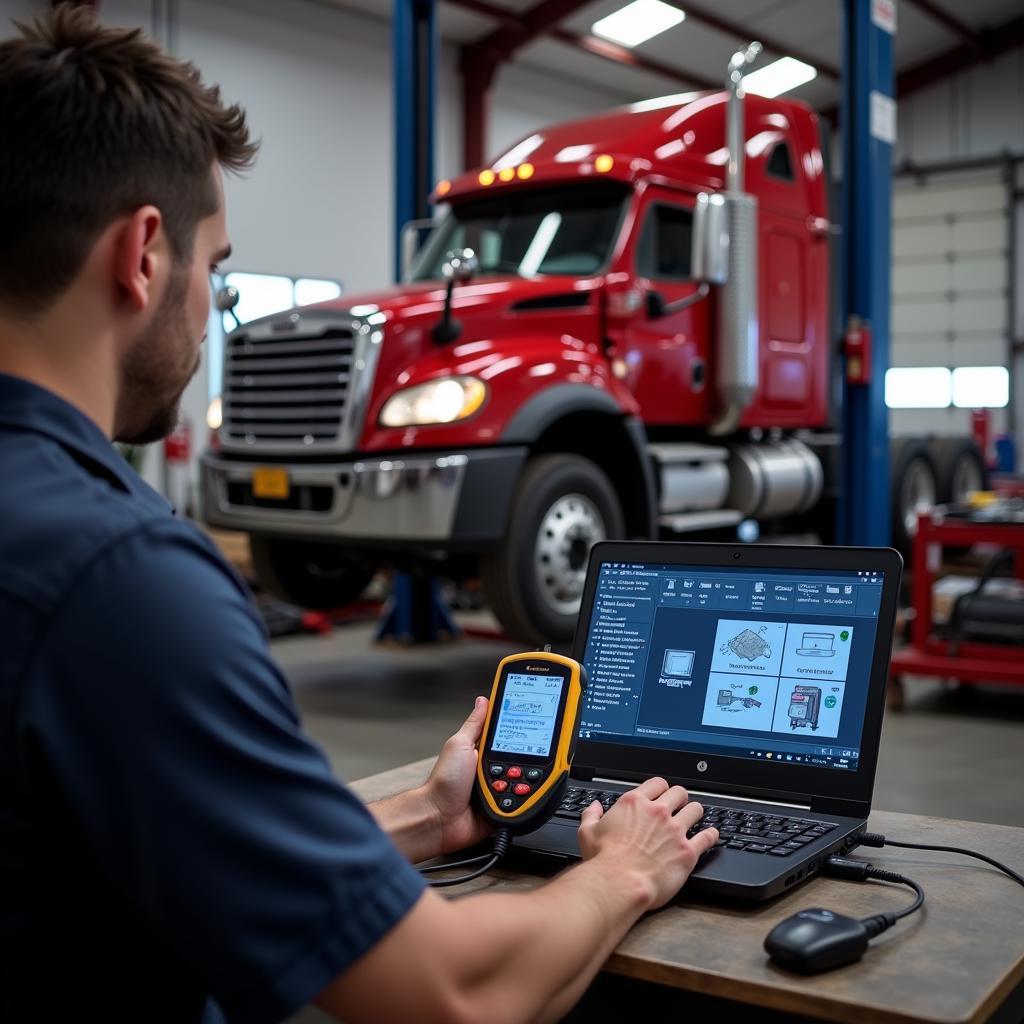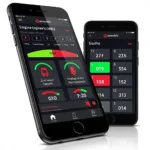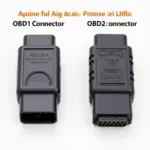Experiencing frustration trying to connect your OBD2 scanner to your Canadian truck? You’re not alone. Many truck owners encounter issues with OBD2 communication, especially with older models or those with specific engine configurations. This comprehensive guide dives into the common reasons why your OBD2 scanner might not be communicating with your Canadian truck and provides practical solutions to get you back on track.
Understanding OBD2 and Canadian Trucks
Before we delve into troubleshooting, let’s briefly discuss the OBD2 standard and its implementation in Canadian trucks. OBD2, or On-Board Diagnostics, is a standardized system that allows external devices, like scanners, to access your truck’s engine and emissions control system data. This data helps diagnose problems, monitor performance, and ensure optimal running conditions.
While all passenger vehicles sold in Canada since 1996 are required to be OBD2 compliant, Canadian trucks often have unique configurations, particularly those with heavy-duty diesel engines. This can sometimes create compatibility challenges with certain OBD2 scanners.
Common Reasons for OBD2 Communication Failure
Several factors can contribute to your OBD2 scanner not communicating with your Canadian truck:
1. Faulty OBD2 Port or Scanner
OBD2 Port Issues:
- Damaged Pins: Check the OBD2 port on your truck for bent, broken, or corroded pins.
- Loose Connection: Ensure the scanner is firmly plugged into the port.
Scanner Issues:
- Defective Scanner: Try a different scanner to rule out a malfunctioning device.
- Incompatible Scanner: Some scanners are not compatible with all vehicle makes and models. Check the scanner’s documentation for compatibility with your truck’s year, make, and model.
2. Blown Fuse
A blown fuse in the vehicle’s fuse box, often related to the OBD2 system or the cigarette lighter adapter (if using one), can interrupt communication. Check your owner’s manual for the location of the fuse box and the specific fuse related to the OBD2 system.
3. Software or Firmware Incompatibilities
Outdated scanner software or firmware can lead to communication problems. Ensure your scanner software is updated to the latest version. Check the manufacturer’s website for updates.
4. Vehicle’s Battery Issues
A weak or discharged battery can disrupt the OBD2 system’s power supply. Ensure your truck’s battery is fully charged and in good condition.
“A common mistake truck owners make is not considering the battery,” says automotive electronics specialist Mark Jenkins. “Even a slightly weak battery can cause intermittent communication issues with the OBD2 system.”
5. Specific Canadian Truck Configurations
Some Canadian trucks, particularly heavy-duty models, might have unique protocols or require specific adapters to enable communication with OBD2 scanners. Refer to your owner’s manual or contact your dealership for information on specific requirements.
Troubleshooting Steps
If you’re facing an OBD2 communication problem, follow these steps:
-
Check the Basics: Inspect the OBD2 port and scanner for damage and ensure a secure connection. Try a different scanner and verify your truck’s battery is fully charged.
-
Check the Fuse: Consult your owner’s manual for the location of the OBD2 fuse and inspect it for any signs of being blown. Replace if necessary.
-
Update Software/Firmware: Ensure your scanner’s software and firmware are up-to-date. Visit the manufacturer’s website for the latest versions.
-
Consult Owner’s Manual: Refer to your truck’s owner’s manual for any specific instructions or recommendations for using OBD2 scanners.
-
Contact Dealership or Mechanic: If the problem persists, contact your authorized dealership or a qualified mechanic specializing in your truck’s make and model for further assistance.
 Mechanic Using OBD2 Scanner on a Truck
Mechanic Using OBD2 Scanner on a Truck
Conclusion
While encountering issues with your OBD2 scanner not communicating with your Canadian truck can be frustrating, understanding the potential causes and following these troubleshooting steps can help you resolve the problem. Remember to prioritize safety, consult your owner’s manual, and seek professional help if needed. With a little patience and the right approach, you’ll have your OBD2 scanner up and running, allowing you to diagnose and address any issues with your Canadian truck effectively.
Frequently Asked Questions
1. Why is my OBD2 scanner not turning on?
Ensure your scanner is properly connected to the vehicle’s OBD2 port and the vehicle’s ignition is turned to the “On” position (engine not running). Check for a blown fuse in the vehicle’s fuse box related to the OBD2 system or cigarette lighter adapter.
2. Can I use any OBD2 scanner on my Canadian truck?
While most OBD2 scanners are compatible with standard protocols, it’s essential to check the scanner’s documentation for compatibility with your truck’s year, make, and model. Some heavy-duty trucks might require specific adapters or scanners.
3. Where is the OBD2 port located in my Canadian truck?
The OBD2 port is typically located under the driver’s side dashboard, near the steering column. Refer to your owner’s manual for the exact location.
4. What should I do if my OBD2 scanner still won’t communicate?
If you’ve tried the troubleshooting steps and the problem persists, it’s best to consult your authorized dealership or a qualified mechanic specializing in your truck’s make and model. They have the expertise and tools to diagnose and resolve more complex issues.
5. Can I damage my truck by using an incompatible OBD2 scanner?
Using an incompatible OBD2 scanner is unlikely to cause damage to your truck, but it might not function correctly or provide accurate data. It’s crucial to choose a compatible scanner to ensure accurate diagnosis and avoid potential communication conflicts.
For any further assistance or support, please don’t hesitate to reach out to our team of experts. We’re available 24/7 via WhatsApp at +1(641)206-8880 or email us at [email protected].

